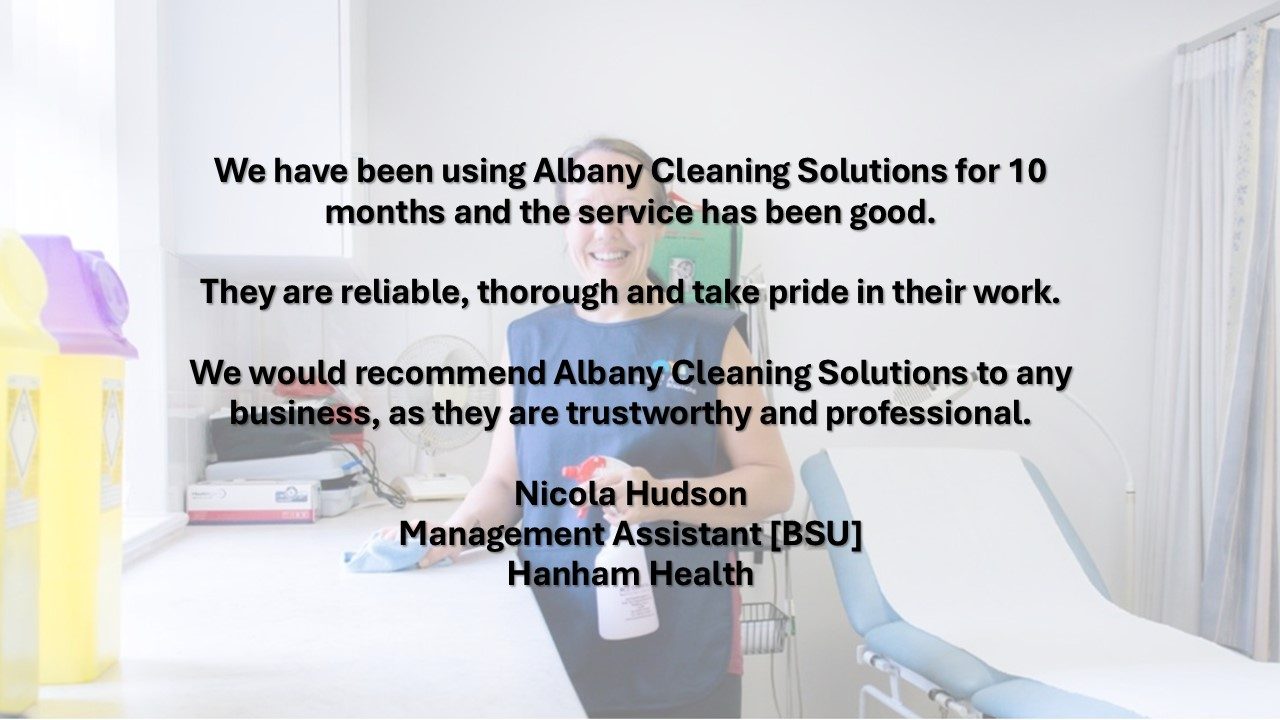 Published: October 2025
Published: October 2025
As of 2025, NHS England has released an updated version of its National Standards of Healthcare Cleanliness, replacing the 2021 version. These changes bring fresh requirements, tighter expectations, and new responsibilities for cleaning services providers operating in healthcare settings, including the following:
- Expanded Scope: Ambulance Services Now Included
One of the most significant changes in the 2025 standards is the explicit inclusion of ambulance trusts and patient transport vehicles under the same cleansing requirements as hospital and clinic settings.
- Revised Elements, Risk Categories & Cleaning Frequencies
The 2025 standard refines how cleaning elements, risk classification, and frequencies are structured. Many of the additional elements relate to ambulances, but in building settings the standard also redefines or clarifies existing elements.
- Introduction of Efficacy (Process) Audits Alongside Outcome Audits
Under the 2021 standards, audits primarily focused on technical cleanliness—e.g. visual checks or microbial swabs. The 2025 update adds a new dimension: efficacy audits, which assess how the cleaning was performed, not just whether the result is “clean enough.”
- Transparency, Star Ratings & Public Display
Another notable change is the push for greater transparency and accountability through public-facing display of cleanliness ratings: The new standards mandate a star-rating system to be displayed in relevant clinical areas, similar to food hygiene ratings, so that staff, patients, visitors, and the public can see the cleanliness performance of an area.
- Governance, Accountability & Collaborative Approach
The 2025 standards reinforce the need for clear governance structures and shared accountability: Healthcare organisations must maintain a strategic cleanliness plan ratified by board-level or senior committees, linking infection prevention, facilities, and cleaning policies. All staff, including cleaning operatives, must understand their individual responsibilities under the standards. Auditing processes must be documented, transparent, and contractually enforceable, including rectification timelines and escalation paths.
- Technology, Digital Audits & Analytics
To support the increased complexity and transparency, the 2025 standards more explicitly endorse digital audit solutions and data analytics.
- Electronic auditing systems are flagged as useful for capturing audit data, identifying trends and hot spots, and sharing results.
- Real-time dashboards, trend analytics, and feedback loops will increasingly be expected in contracts.
The Role of Albany Cleaning Solutions
Our staff training is crucial for maintaining high standards. The Albany Cleaning Solutions training programs cover core cleaning procedures, risk assessment, and the use of specialised equipment. Our Regular Quality Inspections and Electronic Quality Auditsare also essential to ensure cleaning effectiveness and identify areas for improvement. As a SAMSON Approved Contractor (Required by the Royal College of Nursing), our healthcare clients can rest assured that the highest standards of cleanliness are consistently maintained and regularly audited for quality.
We are Here to Help
Healthcare cleaning is an essential component of patient safety and operational efficiency in the UK. By adhering to stringent standards, implementing effective cleaning procedures, and embracing innovations, healthcare facilities can create a safe and hygienic environment. The ongoing commitment to training, technology, and our professional cleaning services will continue to be crucial in maintaining high standards and protecting patients and staff.
Contact us today to discuss your cleaning service needs and explore how we can become your trusted partner in maintaining a safe and clean environment year after year. Together, let us create a space that fosters productivity, health, and a positive work experience for everyone. Please email tim@albanycleaning.co.uk, phone us on 029 2294 0475 or complete our online form.





